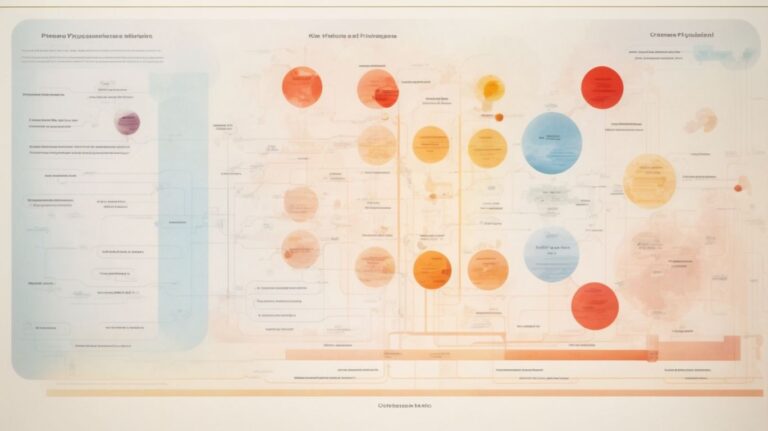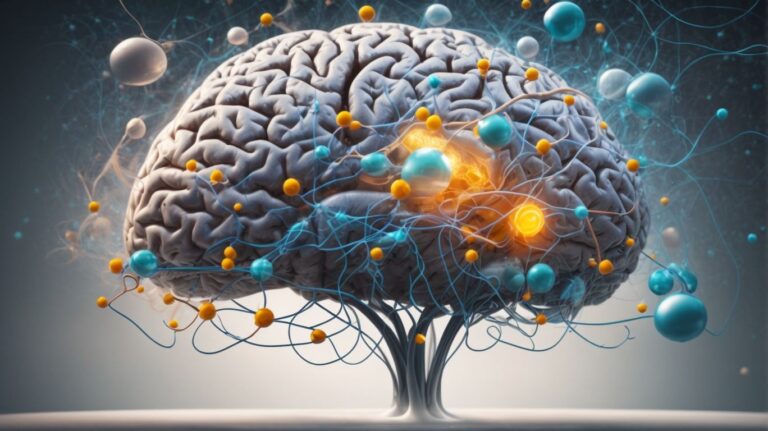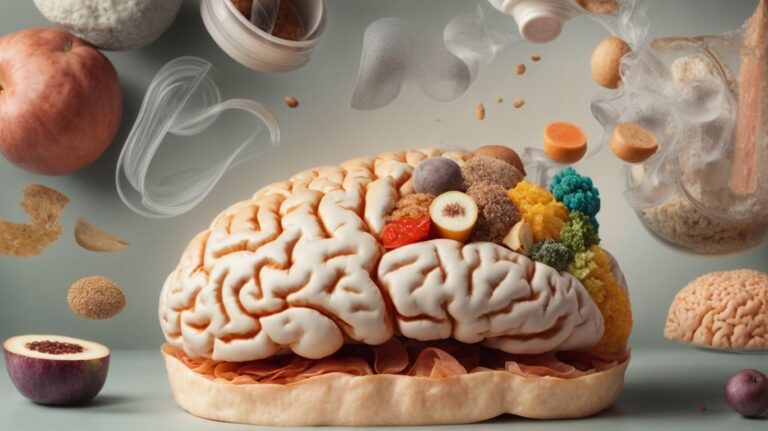Mental health psychology is a fascinating field that delves into the complexities of the human mind and behavior. In this article, we will explore key concepts such as mental health, mental illness, diagnosis, and treatment. We will discuss different approaches in mental health psychology, including biological, behavioral, cognitive, humanistic, and psychodynamic approaches.
Understanding how mental health psychology is applied in practice through therapy, medication management, and support groups will also be covered. We will examine common mental health disorders such as anxiety, mood, psychotic, and personality disorders.
Join us as we unravel the intricacies of mental health psychology and its real-world applications.
Contents
- 1 What Is Mental Health Psychology?
- 2 What Are The Key Concepts In Mental Health Psychology?
- 3 What Are The Different Approaches In Mental Health Psychology?
- 4 How Is Mental Health Psychology Applied In Practice?
- 5 What Are The Common Mental Health Disorders?
- 6 Frequently Asked Questions
- 6.1 What is mental health psychology and why is it important to understand?
- 6.2 What are some common concepts in mental health psychology?
- 6.3 How does mental health psychology differ from traditional psychology?
- 6.4 What are some applications of mental health psychology?
- 6.5 How can understanding mental health psychology benefit individuals?
- 6.6 What are some current trends and advancements in mental health psychology?
What Is Mental Health Psychology?
Mental health psychology is a branch of psychology that focuses on understanding and improving mental wellbeing through research, theory, and treatment approaches.
It plays a crucial role in enhancing and maintaining individuals’ psychological well-being by exploring the intricate relationship between the mind and behavior. Therapists within this field employ various techniques to help individuals overcome mental health challenges, fostering coping mechanisms and resilience.
Notably, mental health psychology intersects with psychiatry, although the former primarily concentrates on psychological aspects while the latter encompasses diagnosing and treating mental disorders. This field delves deep into human emotions, thoughts, and behaviors to provide comprehensive care and support to individuals facing psychological disturbances.
What Are The Key Concepts In Mental Health Psychology?
Key concepts in mental health psychology encompass various aspects such as research, treatment approaches, theoretical frameworks, and strategies for promoting overall wellbeing.
Research methodologies in mental health psychology are crucial for understanding the complexities of the human mind. Scientists and psychologists utilize various techniques such as quantitative surveys, qualitative interviews, and experimental studies to explore different mental health phenomena.
Treatment modalities, including therapy, medication, and lifestyle interventions, play a vital role in helping individuals manage mental health conditions. Theoretical foundations like cognitive-behavioral theory or psychodynamic approach provide frameworks for understanding the underlying mechanisms of mental disorders.
Approaches to enhancing mental health and wellbeing involve incorporating techniques like mindfulness, self-care practices, and social support networks.
Mental Health
Mental health refers to a person’s emotional, psychological, and social wellbeing, influenced by various factors including lifestyle choices, psychological state, and biological underpinnings.
In terms of lifestyle choices, factors such as diet, exercise, sleep patterns, and substance use play a crucial role in shaping one’s mental health. Engaging in regular physical activity and maintaining a balanced diet rich in essential nutrients can have a positive impact on mental wellbeing. Managing stress levels, practicing mindfulness, and seeking social support are vital psychological aspects that contribute to overall mental health.
Biological influences, on the other hand, encompass genetic predispositions, brain chemistry, and hormonal imbalances. These factors can significantly impact mood regulation, cognitive functioning, and stress response mechanisms, thereby affecting mental health outcomes.
Mental Illness
Mental illness refers to a range of conditions that affect a person’s thinking, behavior, and mood, often requiring psychiatric evaluation, diagnosis, and treatment.
These conditions can encompass a variety of disorders, such as anxiety disorders, mood disorders, schizophrenia, and substance abuse disorders. Symptoms of mental illnesses may vary widely depending on the specific disorder but often include persistent feelings of sadness, mood swings, excessive fears or worries, changes in eating or sleeping patterns, and difficulties concentrating. Diagnosis of mental illnesses typically involves a thorough assessment of symptoms, medical history, and sometimes psychological testing.
Treatment options for mental illnesses can include medications, therapy, or a combination of both. Medications, such as antidepressants or antipsychotics, can help manage symptoms and improve overall functioning. Therapy, such as cognitive-behavioral therapy, can provide individuals with coping strategies and tools to address underlying issues contributing to their condition. In more severe cases, hospitalization may be necessary to ensure safety and stabilization.
Diagnosis
Diagnosis in mental health involves a comprehensive evaluation by psychiatric professionals, often employing an interdisciplinary approach to assess symptoms and formulate treatment plans.
Psychiatrists play a crucial role in this process as they are specialists trained to conduct thorough assessments and analyze complex behavioral patterns.
They gather information from various sources, such as patients, their families, and other healthcare providers, to gain a holistic understanding of the individual’s mental well-being.
Moreover, diagnostic criteria outlined in the DSM-5 (Diagnostic and Statistical Manual of Mental Disorders) serve as a guideline for identifying specific mental health conditions during evaluations.
Treatment
Treatment for mental health conditions may encompass various modalities, including therapy, medication management, and complementary medicine approaches tailored to individual needs.
Therapy, such as Cognitive Behavioral Therapy (CBT) and Dialectical Behavior Therapy (DBT), is often used to address underlying emotional issues and thought patterns. Medication management involves prescribing psychotropic medications like antidepressants or antipsychotics to regulate brain chemistry. Complementary interventions like yoga, mindfulness practices, or art therapy can complement traditional treatments for a more comprehensive approach.
Person-centered care is crucial in mental health treatment, ensuring that the individual’s preferences, values, and goals are respected and integrated into the care plan. Interdisciplinary collaboration among mental health professionals, including psychiatrists, psychologists, social workers, and counselors, allows for a holistic assessment and treatment approach.
What Are The Different Approaches In Mental Health Psychology?
Different approaches in mental health psychology encompass diverse perspectives such as the biological, behavioral, cognitive, humanistic, and psychodynamic approaches that inform therapeutic interventions and research.
Each of these psychological approaches offers a unique lens through which to understand and address mental health challenges. The biological approach emphasizes the impact of genetics, brain chemistry, and neurological factors on mental well-being, paving the way for treatments such as medication and neurofeedback therapy. In contrast, the behavioral approach focuses on how external stimuli and reinforcement shape behavior, with techniques like operant conditioning playing a vital role in behavior modification.
The cognitive approach delves into the role of thought patterns, beliefs, and cognitive processes in influencing emotions and behaviors, guiding interventions like cognitive-behavioral therapy (CBT) to reframe negative thinking patterns. Meanwhile, the humanistic approach emphasizes individual growth, self-actualization, and personal experiences in fostering mental well-being, with client-centered therapy prioritizing empathy, genuineness, and unconditional positive regard.
The psychodynamic approach delves into unconscious processes, childhood experiences, and defense mechanisms, offering insights through psychoanalysis and exploring how past relationships shape present behavior. By integrating these diverse approaches, therapists can tailor interventions to individuals’ unique needs and provide holistic support for mental health issues.
Biological Approach
The biological approach in mental health psychology focuses on understanding the biological underpinnings of mental disorders, exploring genetic, neurological, and physiological factors that contribute to conditions and chronic health conditions.
These factors play a crucial role in shaping an individual’s mental health outcomes and well-being. Genetic influences can determine susceptibility to certain disorders, passing down predispositions from one generation to the next. On a neurological level, the brain’s intricate network of neurotransmitters and neural pathways impacts mood regulation and cognitive functions. Additionally, physiological mechanisms such as the endocrine system’s hormonal balance and immune system responses can further influence mental health. Understanding these interconnected biological systems is vital in comprehensive mental health care and treatment strategies.
Behavioral Approach
The behavioral approach in mental health psychology emphasizes the role of behaviors in shaping mental health outcomes, focusing on behavior modification techniques, behavior therapy, and interventions to address maladaptive behaviors.
This perspective asserts that mental well-being is influenced by learned behaviors, suggesting that altering these behaviors can lead to positive changes in psychological functioning.
Behavior modification strategies aim to replace undesirable behaviors with healthier alternatives through reinforcement, shaping, and behavioral modeling. In behavior therapy, individuals work with therapists to identify triggers and develop coping mechanisms to deal with distressing behaviors effectively. These therapies often incorporate cognitive-behavioral components to target both the behavior and the underlying thought patterns contributing to mental health issues.
Cognitive Approach
The cognitive approach in mental health psychology examines the role of thoughts, beliefs, and cognitive processes in shaping emotional wellbeing, drawing from cognitive therapy, positive psychology, and interventions targeting cognitive distortions.
Cognitive therapy techniques involve identifying and challenging negative thought patterns to promote healthier cognitive functioning. By using techniques such as cognitive restructuring, individuals can learn to replace irrational beliefs with more realistic ones, leading to a shift in emotional responses and behavior.
- Positive psychology principles emphasize focusing on strengths, gratitude, and positive emotions to enhance overall mental health. By cultivating a mindset of optimism and resilience, individuals can develop coping strategies to navigate challenges and enhance their emotional well-being.
To address cognitive distortions, therapists employ strategies such as cognitive reframing, which helps individuals reinterpret situations in a more balanced and constructive manner. By questioning automatic negative thoughts and reframing them in a more positive light, individuals can cultivate a healthier cognitive outlook.
Humanistic Approach
The humanistic approach in mental health psychology emphasizes the importance of individual experiences, personal growth, and self-actualization, often utilizing person-centered therapy and focusing on enhancing overall wellbeing.
Person-centered therapy places great value on the client’s autonomy, self-discovery, and self-expression, fostering a collaborative therapeutic relationship where the individual feels understood and respected. Empathy and unconditional positive regard are key components of this therapeutic approach, ensuring that clients are provided with a safe space to explore their thoughts, emotions, and aspirations without fear of judgment.
Wellbeing enhancement strategies within the humanistic framework encompass holistic approaches that promote mental, emotional, and physical health. This can involve practices such as mindfulness, positive psychology interventions, creative expression, and fostering meaningful connections with others.
Psychodynamic Approach
The psychodynamic approach in mental health psychology delves into unconscious processes, childhood experiences, and interpersonal dynamics, informing psychotherapy practices and understanding psychopathology.
Psychoanalytic principles, developed by Sigmund Freud, form the backbone of the psychodynamic perspective. These include concepts like the id, ego, and superego, defense mechanisms, and the influence of early experiences on personality development.
Therapeutic techniques within this framework often focus on exploring the patient’s past to uncover deep-rooted issues and patterns affecting their present behavior. Addressing repressed memories and examining transference and countertransference dynamics are key elements that promote insight and healing in psychodynamic therapy.
How Is Mental Health Psychology Applied In Practice?
The application of mental health psychology in practice involves therapeutic interventions, counseling sessions, medication management, and support groups that aim to enhance mental wellbeing and address psychological issues.
Therapy modalities within mental health psychology encompass cognitive-behavioral therapy, psychodynamic therapy, and mindfulness-based interventions that help individuals explore and change their thought patterns, behaviors, and emotional responses. Counseling approaches in this context focus on creating a safe space for clients to express their feelings, develop coping strategies, and work through traumatic experiences.
Medication management strategies play a crucial role in treating conditions such as depression, anxiety, and bipolar disorder, with psychiatric medications balancing brain chemicals to alleviate symptoms. The integration of pharmacological interventions with therapy ensures a comprehensive approach to mental healthcare.
Support groups provide valuable networks for individuals facing similar mental health challenges, offering empathy, shared experiences, and practical advice. These groups foster a sense of community and reduce feelings of isolation, promoting a supportive environment for healing and growth.
Therapy and Counseling
Therapy and counseling play a pivotal role in mental health treatment, offering individuals a safe space to explore their emotions, thoughts, and behaviors with the guidance of trained psychologists and psychotherapists.
Therapy provides a supportive environment where individuals can delve into their inner workings, uncovering past traumas, addressing current challenges, and developing coping mechanisms. Through various therapeutic modalities such as cognitive-behavioral therapy, psychodynamic therapy, and mindfulness-based therapy, individuals can gain insights, learn new skills, and foster personal growth.
Counseling techniques like active listening, empathy, and validation are used by professionals to help clients navigate complex emotions and issues. Psychologists and psychotherapists offer expertise in diagnosing, treating, and providing continuous support for mental health concerns, facilitating healing and well-being.
Medication Management
Medication management in mental health involves the use of psychiatric medications prescribed by psychiatrists to alleviate symptoms, manage conditions, and improve the overall quality of life for individuals with mental health disorders.
Psychiatric medications are classified into various classes based on their mechanism of action and target symptoms. These classes include antidepressants, antipsychotics, mood stabilizers, anxiolytics, and stimulants, each serving a specific purpose in treating different mental health conditions.
It is crucial for psychiatrists to carefully consider the patient’s symptoms, medical history, and potential side effects when prescribing medications. Collaboration between psychiatrists and patients is essential for successful medication management, as it involves discussing the benefits, possible risks, and ensuring adherence to the treatment plan. This partnership fosters trust and enables patients to take an active role in their mental health journey.
Support Groups
Support groups provide a valuable resource for individuals facing mental health challenges, fostering a sense of community, understanding, and shared experiences that contribute to improved mental wellbeing and resilience.
These groups offer a safe space for individuals to express their emotions and struggles without fear of judgment. Empathy plays a crucial role in these communities, as members find solace in knowing they are not alone in their journey toward better mental health.
The exchange of coping strategies and tips for managing symptoms within the group equips members with practical tools to navigate their mental health challenges more effectively.
- Through regular interactions and discussions, individuals in these groups develop a stronger sense of self-awareness and emotional intelligence, enabling them to recognize and address their needs more adeptly.
- The camaraderie formed within support groups fosters a powerful bond among members, creating a network of mutual support that extends beyond the structured meetings.
The sense of belonging and shared experiences derived from support groups significantly enhance mental wellbeing and resilience, offering a lifeline of understanding and encouragement to those in distress.
What Are The Common Mental Health Disorders?
Common mental health disorders encompass conditions such as anxiety disorders, mood disorders, psychotic disorders, and personality disorders that significantly impact individuals’ emotional and psychological wellbeing.
Anxiety disorders are characterized by excessive worry, fear, or avoidance that can interfere with daily life activities. Symptoms may include panic attacks, obsessive thoughts, or social phobia. Diagnosis is based on specific criteria outlined in diagnostic manuals like the DSM-5, which also serve as guidelines for treatment.
Mood disorders, such as depression and bipolar disorder, involve fluctuating emotions, low energy, changes in sleep or appetite, and feelings of hopelessness. Diagnosis typically requires a specific duration and intensity of symptoms over time.
Psychotic disorders, like schizophrenia, involve delusions, hallucinations, disorganized thinking, and social withdrawal. Treatment often includes a combination of antipsychotic medications and therapy.
Personality disorders consist of enduring patterns of behavior, cognition, and inner experience that deviate significantly from cultural expectations. They can lead to difficulties in relationships, work, or other areas of life. Treatment may involve therapy to address maladaptive patterns and coping strategies.
Anxiety Disorders
Anxiety disorders are characterized by persistent feelings of fear, worry, or stress, often accompanied by physical symptoms, phobias, and disruptive patterns of behavior that can impact daily functioning and quality of life.
These disorders encompass a range of conditions, including Generalized Anxiety Disorder (GAD), Panic Disorder, Social Anxiety Disorder, and Specific Phobias, each with distinct characteristics and triggers. Symptoms may manifest differently in each individual, varying from excessive worrying and restlessness to panic attacks or avoidance behaviors.
Therapy plays a crucial role in addressing anxiety-related challenges, offering behavioral techniques, cognitive restructuring, and relaxation strategies to help individuals cope effectively. In combination with medication, therapy can significantly improve symptom management and enhance overall well-being.
Mood Disorders
Mood disorders encompass conditions such as depression and bipolar disorder, characterized by significant changes in mood, energy levels, and emotional stability, often requiring therapy, medication, and lifestyle modifications for management.
Depression, one of the most common mood disorders, is identified by persistent feelings of sadness, hopelessness, and loss of interest in daily activities.
On the other hand, bipolar disorder involves alternating episodes of depression and mania, where individuals experience intense highs and lows. Symptoms might include fatigue, altered sleep patterns, changes in appetite, and difficulty concentrating.
Diagnosis typically involves evaluating the duration and severity of symptoms based on standardized criteria such as the DSM-5. Treatment approaches vary, with therapy like cognitive-behavioral therapy (CBT) and medication such as antidepressants or mood stabilizers being common interventions.
Lifestyle modifications like regular exercise, healthy diet, and stress management techniques can also play a crucial role in managing these disorders.
Psychotic Disorders
Psychotic disorders, including schizophrenia, involve disruptions in cognition, perception, and behavior, often manifesting as delusions, hallucinations, and impaired social functioning that necessitate psychiatric evaluation and comprehensive treatment.
Schizophrenia, a complex mental health condition, presents a myriad of symptoms such as disorganized thinking, speech difficulties, and emotional disturbances. Hallucinations, where individuals may see, hear, or feel things that are not real, and delusions, involving fixed false beliefs resistant to reasoning, are hallmark features. It is crucial that individuals experiencing these symptoms undergo psychiatric assessment to accurately diagnose and tailor treatment plans.
Psychiatric evaluation plays a pivotal role in identifying the severity of the disorder and formulating a holistic approach that may include medication, therapy, and social support.
Personality Disorders
Personality disorders, such as borderline and narcissistic personality disorders, involve enduring patterns of behavior, cognition, and interpersonal functioning that lead to significant distress, impairment, and challenges in maintaining healthy relationships and self-perception.
Individuals with borderline personality disorder may exhibit intense mood swings, instability in relationships, impulsivity, and a distorted sense of self.
On the other hand, those with narcissistic personality disorder often display grandiosity, a lack of empathy, and a constant need for admiration.
Diagnosis of these disorders involves evaluating specific criteria outlined in the DSM-5, such as pervasive patterns of behavior evident since early adulthood.
Frequently Asked Questions
What is mental health psychology and why is it important to understand?
Mental health psychology is the study of how psychological factors influence mental health and well-being. It is important to understand because mental health plays a crucial role in our overall physical and emotional well-being, and understanding its complexities can help improve our quality of life.
What are some common concepts in mental health psychology?
Some common concepts in mental health psychology include stress, resilience, coping strategies, mental disorders, and therapeutic interventions. These concepts help us understand the various factors that contribute to mental health and how to manage and treat mental health issues.
How does mental health psychology differ from traditional psychology?
Traditional psychology focuses on understanding and treating individual psychological problems, while mental health psychology also takes into account the broader social, cultural, and environmental factors that influence mental health. It also emphasizes a holistic approach to mental health, considering the mind, body, and spirit as interconnected.
What are some applications of mental health psychology?
Mental health psychology has various applications, including clinical practice, research, education, and policy development. It is used in therapy and counseling, as well as in understanding and addressing mental health issues in different populations and settings.
How can understanding mental health psychology benefit individuals?
Understanding mental health psychology can benefit individuals by providing them with knowledge and tools to better manage their mental health, cope with stress and challenges, and improve their overall well-being. It can also help reduce stigma and increase awareness about mental health issues.
What are some current trends and advancements in mental health psychology?
Some current trends and advancements in mental health psychology include the use of technology in therapy, the growing focus on cultural competence and diversity in mental health treatment, and the integration of mind-body approaches such as mindfulness and yoga. There is also ongoing research on new therapeutic interventions and treatments for mental health disorders.




